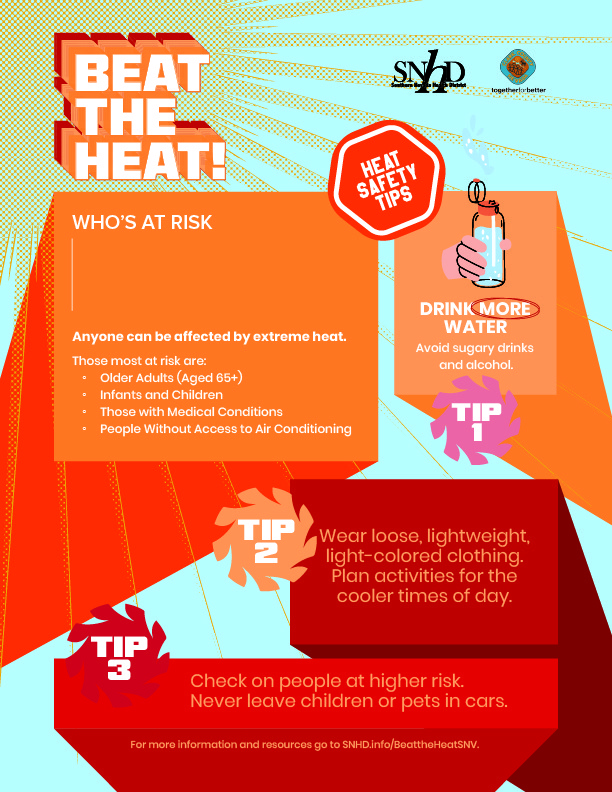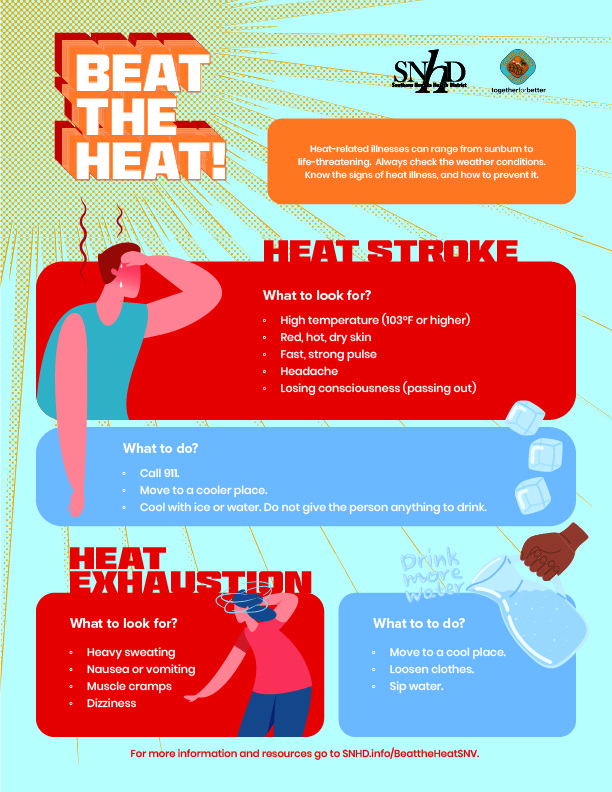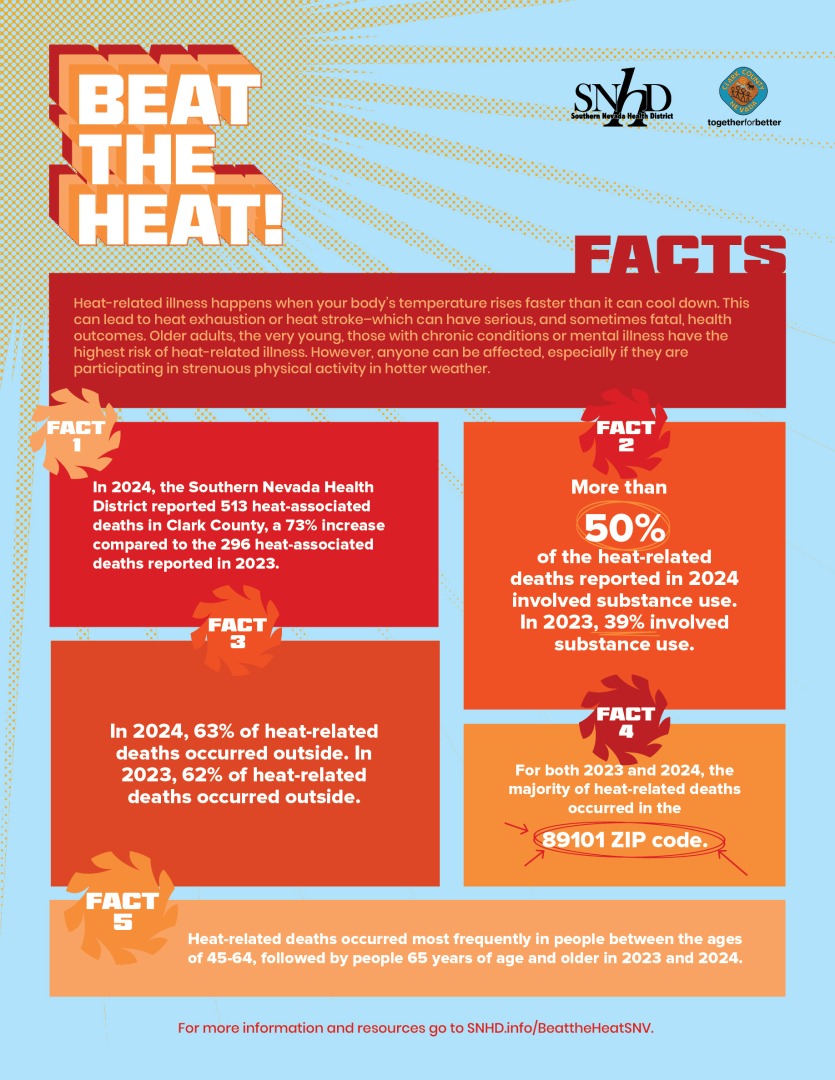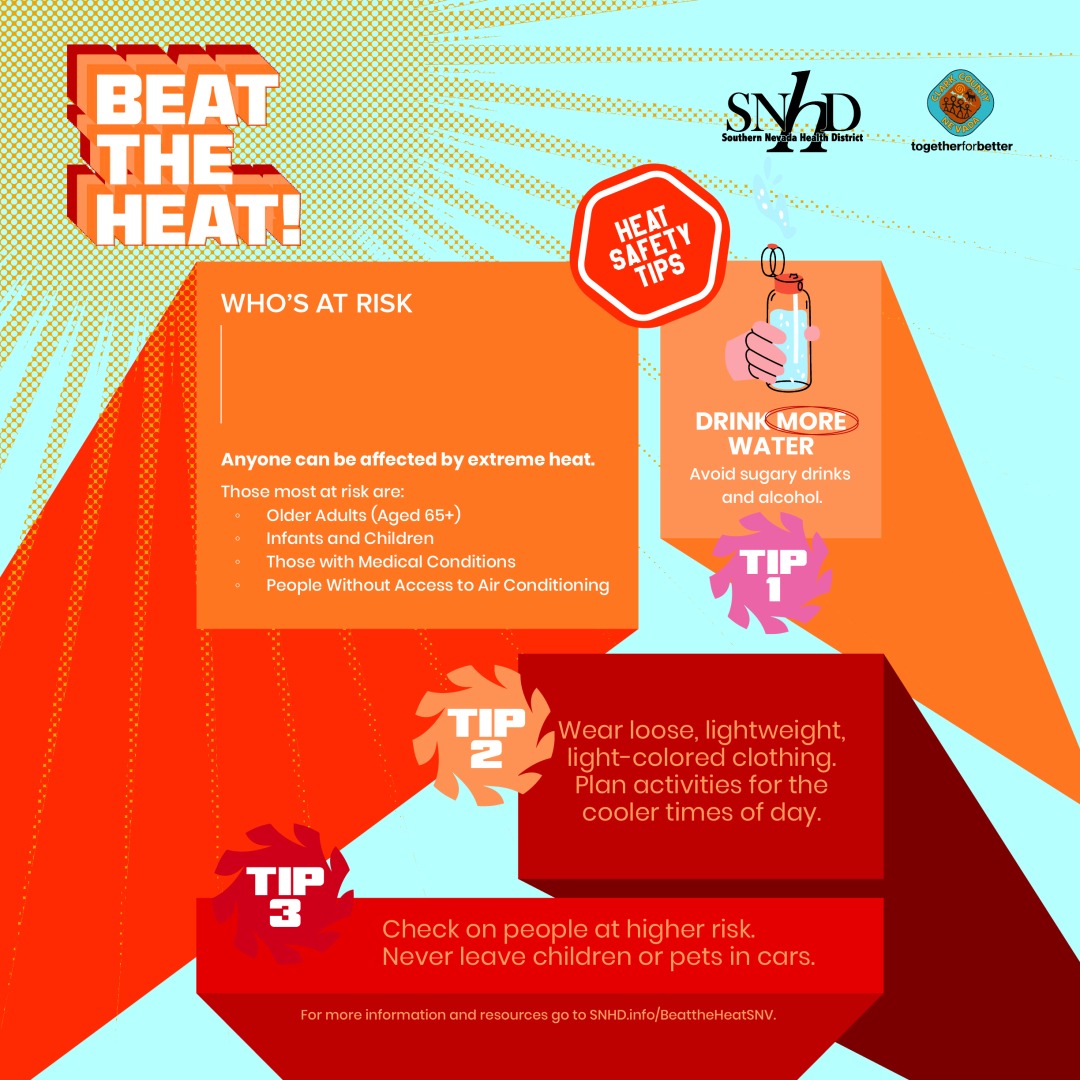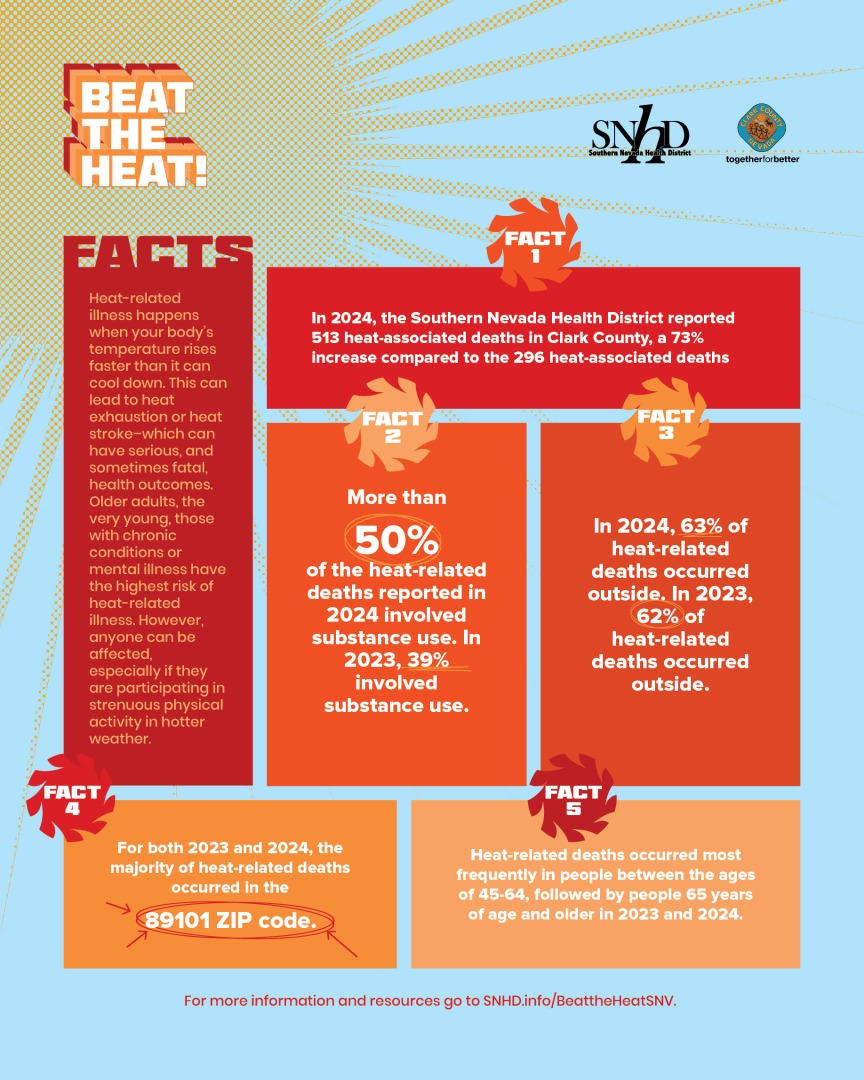Beat the Heat
Heat-related illnesses and deaths can be prevented with planning, information and action. It’s essential for people who are working or enjoying outdoor recreational activities in Southern Nevada to protect themselves during the hotter late spring, summer and early fall. And extreme heat events can bring temperatures that are much hotter and/or humid than average and last for days at a time.
What is Heat-Related Illness?
Heat-related illness can occur when your body is not able to properly cool itself. Normally, your body cools itself by sweating. The sweat evaporates and cools your body. During extreme heat, your body may not be able to do this. Extreme heat conditions cause the evaporation process to slow and your body to work harder to maintain a normal temperature.
Populations at greatest risk of experiencing heat-related illness are:
Additional Resources


